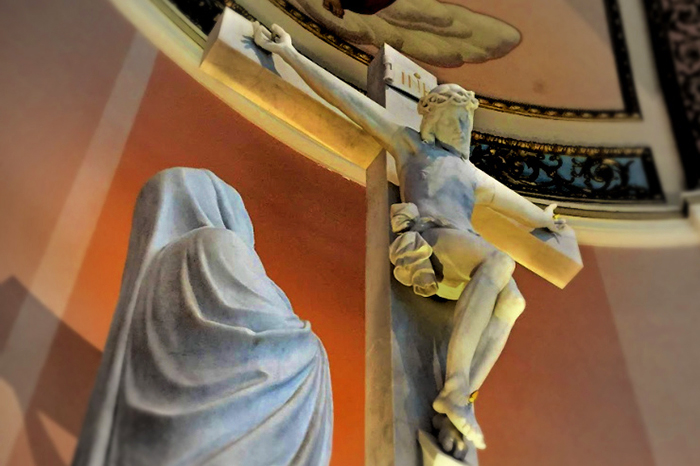
How do we lose our souls? What does it mean “to lose your soul” already in this world? What is a soul, and how can it be lost? Since a soul is immaterial and spiritual, it cannot be pictured. We have to use abstract terms to try to understand it. Philosophers, going right back to Aristotle, have tended to define the soul as a double principle inside every living being: For them, the soul is both the principle of life and energy inside us as well as the principle of integration. In essence, the soul is two things: It’s the fire inside us giving us life and energy and it’s the glue that holds us together. While that sounds abstract, it’s anything but that because we have first-hand experience of what this means. And since the soul is a double principle doing two things for us, there are two corresponding ways of losing our souls. We can have our vitality and energy go dead, or we can become unglued and fall apart, petrification or dissipation; in either case, we lose our souls. What’s healthy for my soul? This is a legitimate question but also a trick one. We lose our souls in opposite ways, and thus, care of the soul is a refined alchemy that has to know when to heat things up and when to cool things down: What’s healthy for my soul on a given night depends a lot upon what I’m struggling with more on that night: Am I losing my soul because I’m losing vitality, energy, hope, and graciousness in my life? Am I growing bitter, rigid, sterile, becoming a person who’s painful to be around? Or, conversely, am I full of life and energy but so full of it that I am falling apart, dissipating, losing my sense of self? Am I petrifying or dissipating? Both are a loss of soul. In the former situation, the soul needs more fire, something to rekindle its energy. In the latter case, the soul already has too much fire; it needs some cooling down and some glue. After we die, we can go to heaven or hell. That’s one way of speaking about losing or saving our souls. But Christian theology also teaches that heaven and hell start already now. Already here in this life, we can weaken or destroy the God-given life inside us by either petrification or dissipation. We can lose our souls by not having enough fire, or we can lose them by not having enough glue.









